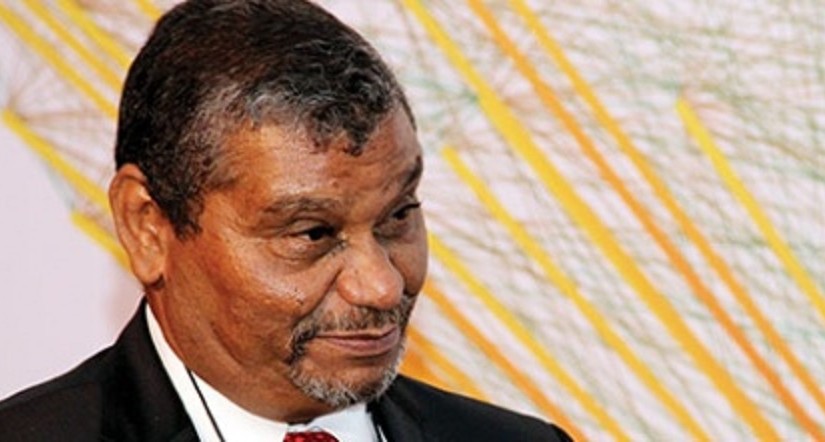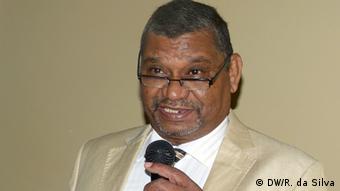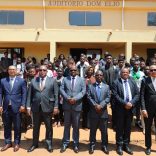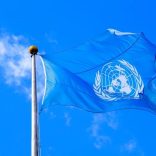Bank of Mozambique presents Economic Outlook and Inflation Forecasts Report at UCM - Lichinga
Average Mozambican “already paying” for the country’s loss of credibility – Ragendra de Sousa

tudonumclik / DW
The Mozambican prime minister may have gone to Washington to explain the EMATUM debts, but the individual worst affected by the weakening of Mozambique’s credibility at the International Monetary Fund is the man in the street, says economist Ragendra de Sousat.
DW Africa discussed the issue further with de Sousa.
Note: This interview was made before April 19, the date it first published, and before the Financial Times of London revealing a second undisclosed loan of around US$500 million.
DW Africa: What significance does the position taken by the International Monetary Fund (IMF) represent?

Ragendra de Sousa (RS): The role of the IMF, as stated in its own constitution, is to manage the external accounts of the member countries, so that there is prudent management. The existence of an unregistered debt is therefore an embarrassment for the IMF and for ourselves. The administrative part of this matter has a simple solution: the government solves the problem of non-registration. But from an economic point of view, the situation is more troubling because it forces us to recalculate total debt and reassess its sustainability.
According to the known numbers, including Ematum, Mozambique’s sovereign debt was still sustainable, at between 42 and 43 percent of the GDP. With this new debt, with the figures currently available, it is very difficult for an economist to give an opinion. You need to know the amount interest payment terms of such debt in order to calculate the effect on the country.
DW Africa: From a general point of view, and taking into account the context of economic and financial crisis in Mozambique, how will the second undisclosed loan affect the country?
RS: The first consequence is the non-disbursement of IMF funds. The IMF should make an already-authorized disbursement of around $50 million, which I believe will not be handed over. On the other hand, with a revelation of this nature made by the IMF, and taking into account rating agencies revisions, the country is placed in a situation of extreme difficulty.

At this time, there is an overall shortage of foreign currency in the market. The IMF’s attitude leaves the country with the possibility of having access only to donations. However, the G20 countries are also retreating because the revelations of unaccounted debt erode the country’s credibility. It is nevertheless good to note that this revelation is the doing of the outgoing government, although the state will have to honour these commitments.
DW Africa: As I said, Mozambique may become even more dependent on international donors. But is information about the retraction of traditional donor support, even the closure of embassies, confirmed?
RS: It is confirmed. Norway, our traditional supporter since the early days of independence, will close its embassy. I was told this was because of Danish budgetary constraints, which as an economist I do not buy. It is a matter of detaching from Mozambique, and I believe it will happen by the end of the financial year.
DW Africa: And in the end, isn’t it the Mozambican average citizen who ends up most affected by this blow to the country’s credibility?
RS: Absolutely. The citizen is already footing the bill. The devaluation of the national currency, the increased cost of basic necessities, factories idle for lack of raw materials – these are the immediate consequences. Not to mention the foreign investment, which has been the major source of economic growth.
Investors will always retreat in these circumstances. Therefore, the first task of government is to clarify the matter, to see if it we can get back to normal. But it will be a modified normal.
DW Africa: However, the Mozambican government has set up a technical team to clarify the revelations on the Ematum debt with the IMF in Washington. What do you expect to result from this mission?
RS: I want to believe that what the government will do is establish how was the debt made, what guarantees it has, what the quality of the project is. To try to show the IMF that these are problems of administrative transition. I assume the responsibility of calling this an administrative problem of transition from one administration to another. Because this government, took office and to then faced the natural calamity that destroyed infrastructure. I believe that it was by focusing attention on this activity that they distracted a little from grabbing that file.













Leave a Reply
Be the First to Comment!
You must be logged in to post a comment.
You must be logged in to post a comment.